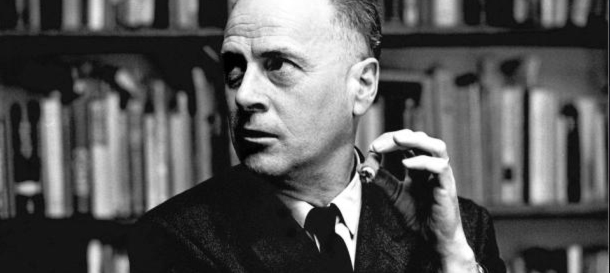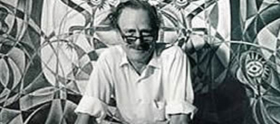Biography

New ideas bring new ways of thinking. New innovations bring new ways of living, yet their effects are not always understood. Often the implications or results of such ideas are not understood until decades later, when historians look back and analyze its strengths and weaknesses.
Marshall McLuhan took a different approach. When he saw relevant media and the effects on society, he decided humanity could not afford to wait twenty to thirty years to understand how the medium work us over. He wanted people to know the power of media.
Because of his predictions he has been referred to as the "Oracle of the Electronic Age" bringing to the public's attention the influence of media on society(Regent). He was a messenger to the masses, the bringer of understanding to the study of communication media.
Early Years
Herbert Marshall McLuhan was born on July 21, 1911 in Edmonton, Alberta, Canada. The oldest son of Herbert and Elsie McLuhan. He had only one sibling, his younger brother Maurice, who was given the nickname Red because of his bright hair color.
 When he was a young child, Marshall was particularly quiet and did not prove himself to be a very good student. However, as he grew older, he shed his fear of speaking and applied himself rigorously to his studies. In seventh grade he acquired his lasting love for English. So began the ongoing affair which Marshall had with literature and books. He read nearly everything he could find often reading multiple books from differing points of view all at the same time, a habit which would stick with him all of his life. “He was known to read three books from distant and multiple disciplines simultaneously” (Cooper 167).
When he was a young child, Marshall was particularly quiet and did not prove himself to be a very good student. However, as he grew older, he shed his fear of speaking and applied himself rigorously to his studies. In seventh grade he acquired his lasting love for English. So began the ongoing affair which Marshall had with literature and books. He read nearly everything he could find often reading multiple books from differing points of view all at the same time, a habit which would stick with him all of his life. “He was known to read three books from distant and multiple disciplines simultaneously” (Cooper 167).
Education
In 1929 he started his four-year degree in English at the University of Manitoba. While still finishing his M.A. in English, Marshall began contemplating moving to England to attend Cambridge. With special thanks to his father who used his skills of persuasion to encourage the head of the English department to consider his son, Marshall received the IODE War Memorial scholarship which allowed him to go to Cambridge. It was during his years there that the young, scholarly Marshall became the great, intellectual McLuhan (Gordon, Marshall 37-44).